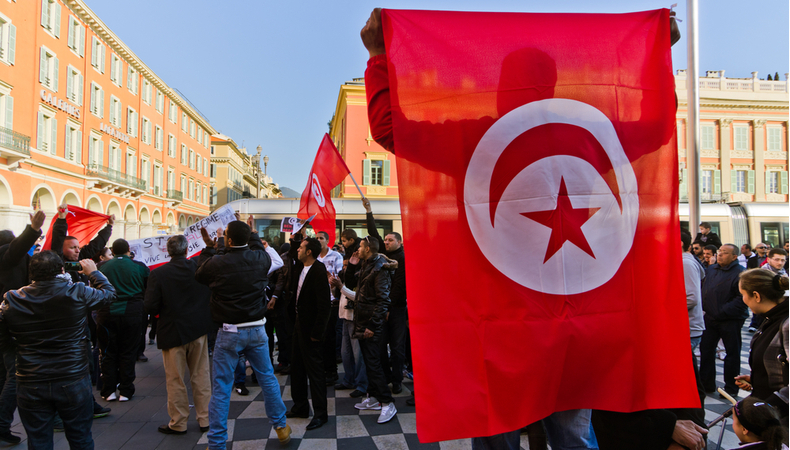Tunisia: 26-years-old man burns himself alive

A young man injured during the 2011 Tunisian revolution, unemployed because he was no longer able to work and without any compensation from the government, set himself on fire in the Tunisian capital in front of his family and died shortly after in a hospital in the southern suburbs of Tunis. The immolation of 26-year-old Neji Hefiane recalls to our memory the death of Mohamed Bouazizi, the street vendor. His suicide by fire on 17 December 2010 started the Tunisian revolution, ousting President Zine El Abidine Ben Ali and launching the Arab Spring across the whole region.
Neji Hefiane lived in Intilaka, one of the workers’ districts of Tunis, where violent protests against the regime broke out between December 2010 and January 2011. At the age of 16, he suffered gunshot wounds to the head. The father wrote to President Kais Saied explaining his son’s case and asking him to intervene in favor of the family in difficulty. “We didn’t get an answer, not even after my son died,” he said.
Other wounded in the revolution “threaten to kill themselves,” said the lawyer Lamia Farhani, President of Aoufiaa association set up to help the martyrs and injured in the revolution. “There is no political will to guarantee the fundamental rights” of the victims, she added. In Tunisia, the President of the Republic, Kais Saied, suspended the functions of government and Parliament, applying Article 80 of the Constitution, after anti-government demonstrations, medical collapse, and accusations of corruption by many politicians. Neji Hefiane’s death is the latest in a long series for which Ennadha and the Islamist parties are responsible.
For years, compensation for the victims of the 2011 revolution was discussed in Parliament without reaching any solution. President Kais Saied is now working on a series of economic measures with the newly appointed Ministry of Economy to save the young Republic from bankruptcy. Unfortunately, bad apples and terrorists have created thick legacies between Tunisian institutions and abroad, making it virtually impossible to clean up the country thoroughly. Ten years after the Jasmine Revolution, the values that inspired the revolts tragically wrecked under the banner of the death of Ennahdha, who threw the country into a reckless process of Islamization.




